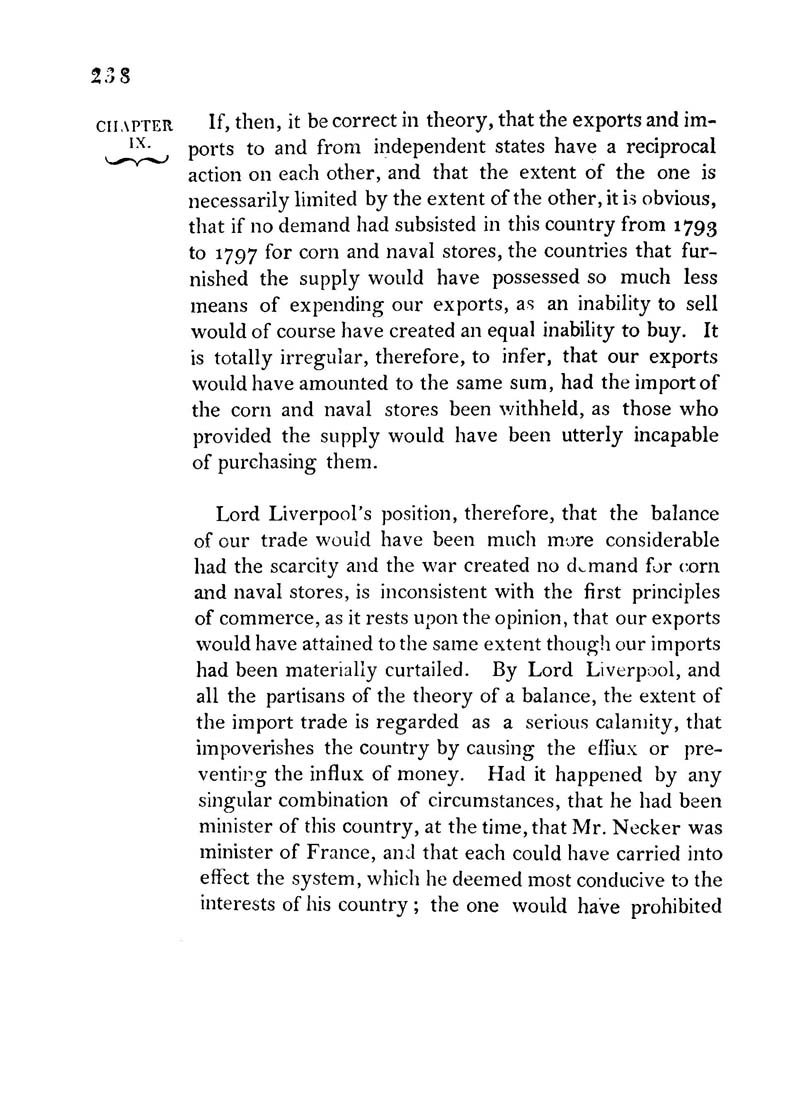238
CHAPTER If, then, it be correct in theory, that the exports and im-
^^- ports to and from independent states have a reciprocal
action on each other, and that the extent of the one is
necessarily limited by the extent of the other, it is obvious,
that if no demand had subsisted in this country from 1793
to 1797 for corn and naval stores, the countries that fur¬
nished the supply would have possessed so much less
means of expending our exports, as an inability to sell
would of course have created an equal inabihty to buy. It
is totally irregular, therefore, to infer, that our exports
would have amounted to the same sum, had the import of
the corn and naval stores been v/iihheld, as those who
provided the supply would have been utterly incapable
of purchasing them.
Lord Liverpool's position, therefore, that the balance
of our trade would have been much more considerable
had the scarcity and the war created no demand for eorn
and naval stores, is inconsistent with the first principles
of commerce, as it rests upon the opinion, that our exports
would have attained to the same extent though our imports
had been materially curtailed. By Lord Liverpool, and
all the partisans of the theory of a balance, the extent of
the import trade is regarded as a serious calamity, that
impoverishes the country by causing the efiiux or pre¬
venting the influx of money. Had it happened by any
singular combination of circumstances, that he had been
minister of this country, at the time, that Mr. Necker was
minister of France, and that each could have carried into
effect the system, which he deemed most conducive to the
interests of his country ; the one would have prohibited
|








